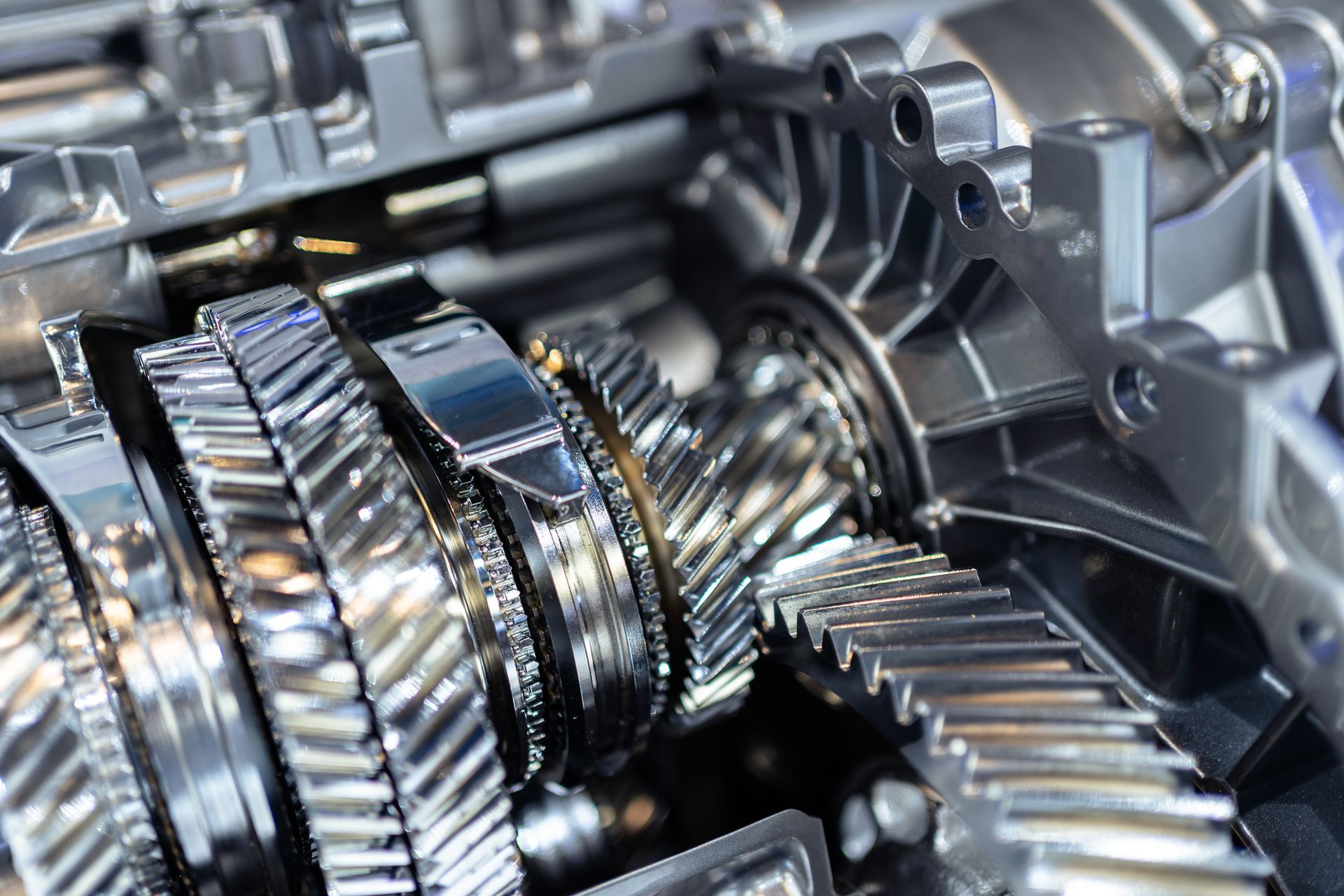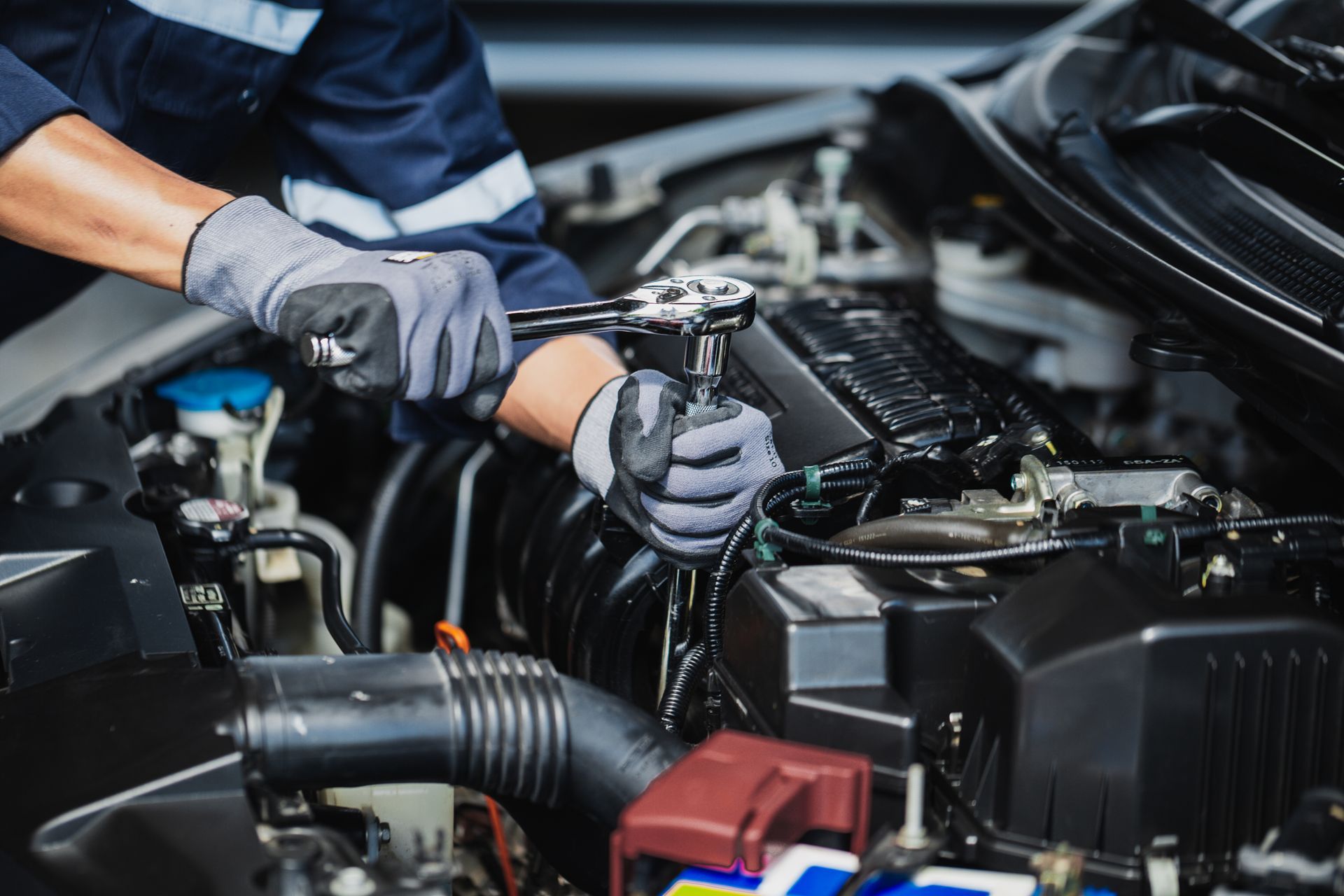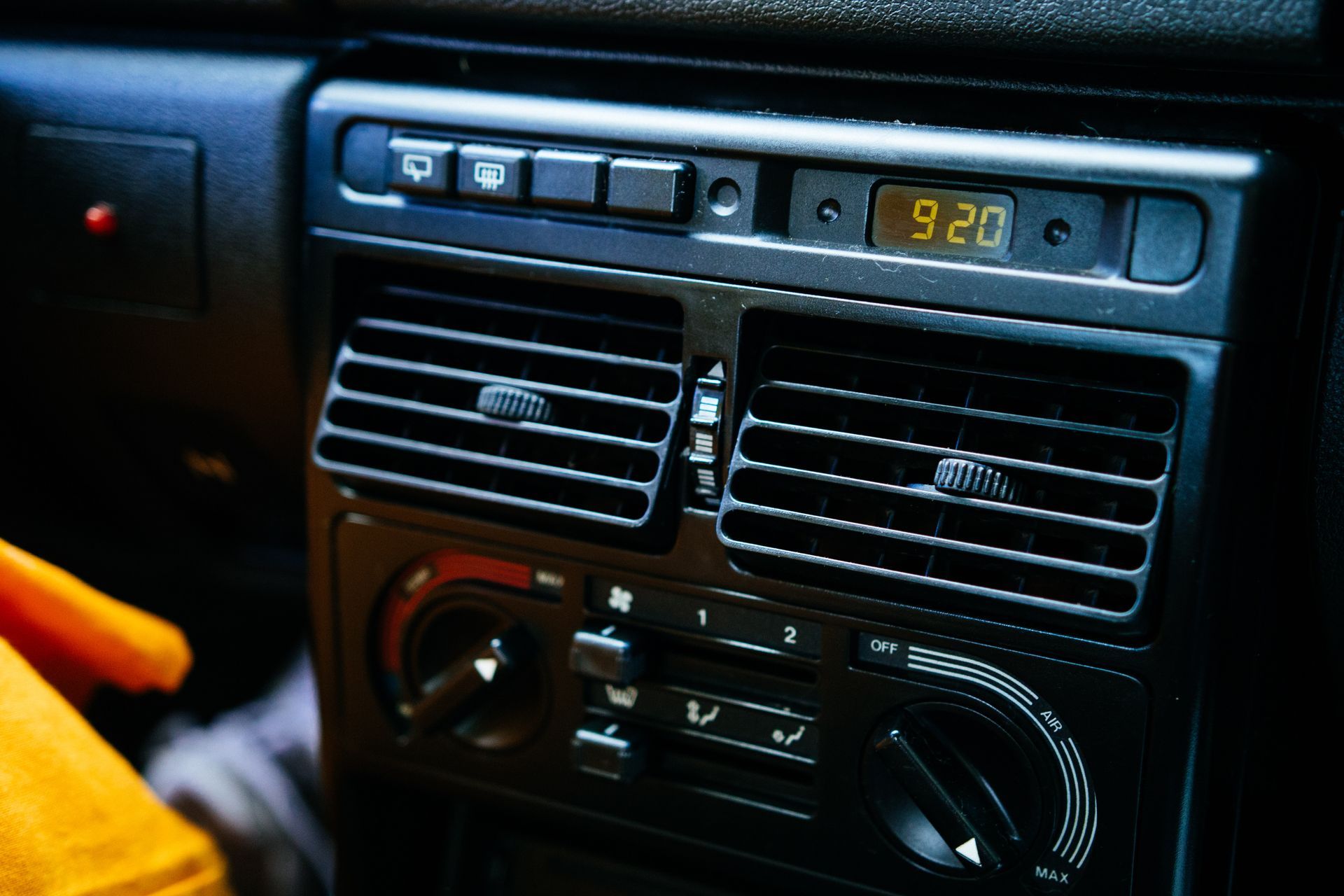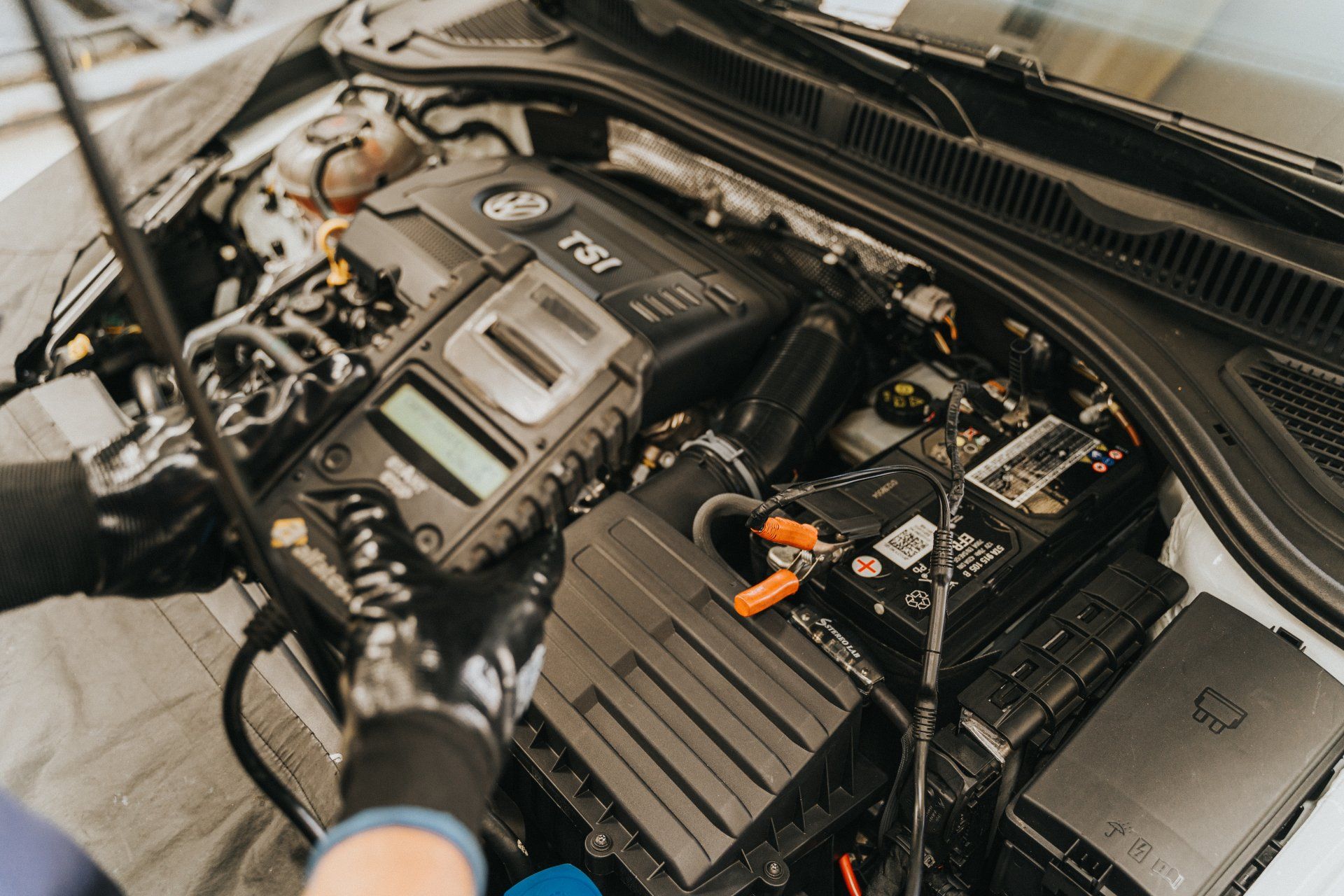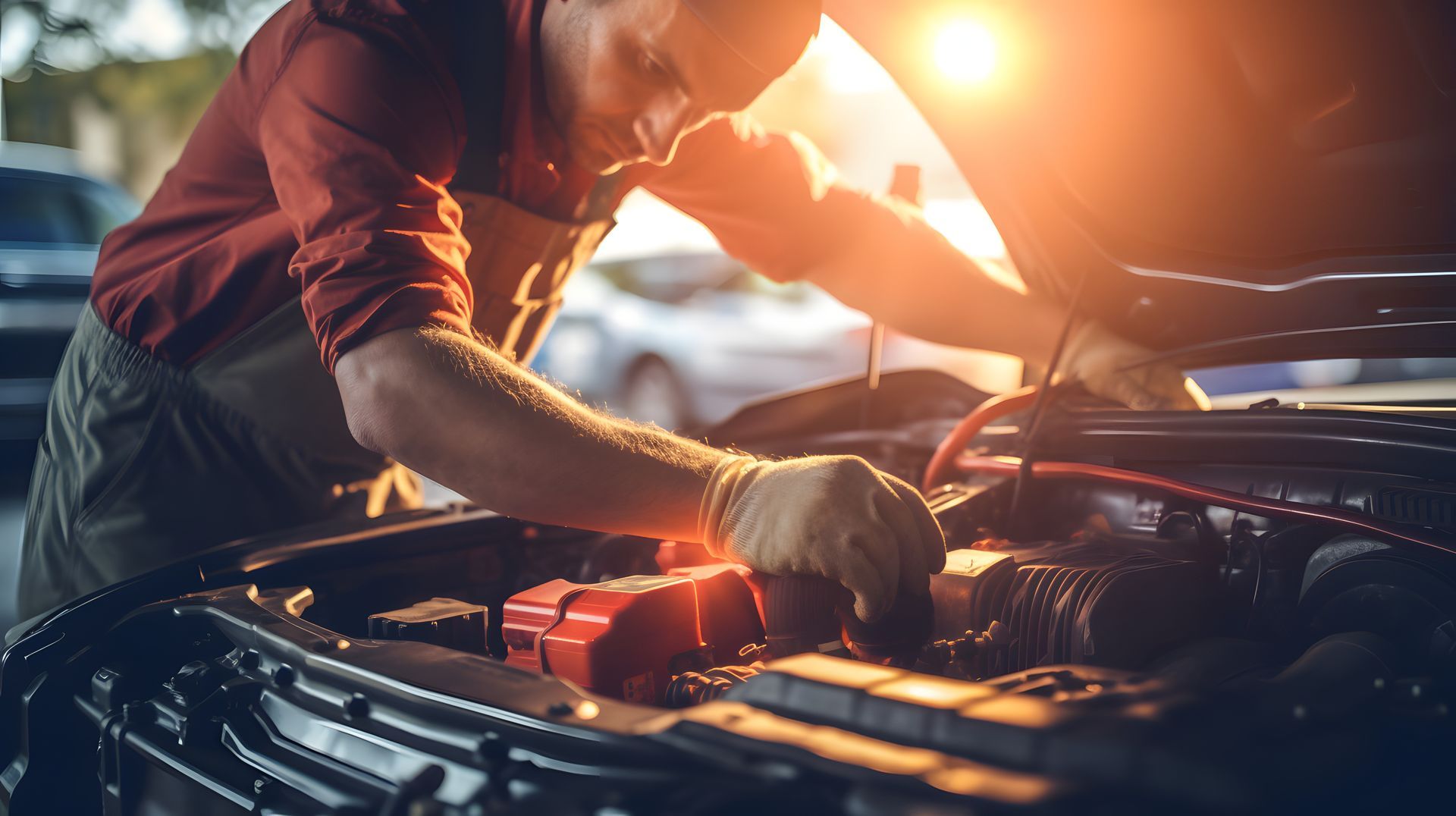Why You Should Never Ignore a Fluid Leak Under Your Car
Have you ever parked your car in your Pequannock Township driveway, only to discover a mysterious puddle underneath it the next morning? At Bock Automotive, we've seen countless local drivers dismiss fluid leaks as minor inconveniences, only to face serious mechanical issues and costly repairs later.
Today, we're explaining why those small drips deserve your immediate attention and how our team can help identify and fix leaks before they lead to major problems.
The Critical Fluids in Your Vehicle
Modern vehicles rely on several different fluids to function properly, each with its own distinct characteristics and purpose:
Engine Oil
- Color: Light amber when new, darkens to brown/black with use
- Function: Lubricates engine components, reduces friction, and helps cool the engine
- Consequence of ignoring leaks: Engine damage, potentially catastrophic engine failure
Transmission Fluid
- Color: Red or pink (sometimes light brown in older vehicles)
- Function: Lubricates transmission components and enables smooth gear shifting
- Consequence of ignoring leaks: Jerky shifting, transmission overheating, eventual transmission failure (a repair that can cost thousands)
Coolant/Antifreeze
- Color: Typically green, orange, pink, or blue (depending on type)
- Function: Regulates engine temperature and prevents freezing in Pequannock Township's cold winters
- Consequence of ignoring leaks: Overheating, warped cylinder heads, blown head gaskets
Brake Fluid
- Color: Clear to amber, sometimes darkens with age
- Function: Transfers force from your brake pedal to the brake calipers
- Consequence of ignoring leaks: Reduced braking performance, brake failure (particularly dangerous on Pequannock's hilly terrain)
Power Steering Fluid
- Color: Clear, pink, or light amber
- Function: Assists in steering effort, making turns easier
- Consequence of ignoring leaks: Difficulty steering, potential steering failure
Differential/Gear Oil
- Color: Dark brown to black
- Function: Lubricates differential gears in the axle housing
- Consequence of ignoring leaks: Noise, excessive wear, potential differential failure
Why Even Small Leaks in Pequannock Township Deserve Attention
You might wonder why a few drops under your car parked in your Lincoln Park or Pompton Plains driveway matter. Here's why every leak deserves attention:
1. Small Leaks Become Major Problems
What starts as a few drops can quickly progress to a steady stream. By the time most Pequannock Township drivers notice a puddle, the leak has often been present for some time. Small, inexpensive gasket or seal failures can quickly lead to major component failures when fluids drop below critical levels.
2. Safety Concerns on Local Roads
Fluid leaks can lead to sudden mechanical failures – imagine losing brake function while navigating the curves on Route 23 or experiencing engine seizure while merging onto I-287. These scenarios aren't just inconvenient; they're dangerous to you and other Pequannock Township drivers.
3. Environmental Impact in Our Community
Automotive fluids are harmful to the environment. When they leak onto Pequannock Township streets and driveways, they eventually wash into our local waterways, including the Pequannock River. One quart of motor oil can contaminate up to 250,000 gallons of water.
4. Cumulative Damage Over Time
Even slow leaks have a cumulative effect. Low fluid levels mean systems operate without proper lubrication or cooling, accelerating wear on expensive components. What might have been a simple seal replacement can turn into a major overhaul.
How to Identify Common Fluid Leaks
If you spot fluid under your vehicle in your Pequannock Township driveway, here's how to get a preliminary idea of what might be leaking:
Location of the Leak
- Front of vehicle: Likely engine oil, coolant, or power steering fluid
- Center of vehicle: Often transmission fluid or brake fluid
- Rear of vehicle: Possibly differential fluid or fuel
Color and Consistency
- Clear fluid: Likely water from A/C condensation (normal in summer months in Pequannock Township)
- Green, orange, pink, or blue fluid: Likely coolant/antifreeze
- Light brown to black oily fluid: Engine oil or gear oil
- Red or pink slick fluid: Transmission fluid or power steering fluid
- Light yellow to clear fluid: Brake fluid (extremely important to address immediately)
Smell
- Sweet smell: Likely coolant
- Burnt smell: Could be overheated oil or transmission fluid
- Gasoline smell: Fuel leak (requires immediate attention)
The Pequannock Township Climate Factor
Our local climate in northern New Jersey presents unique challenges that can both cause and exacerbate fluid leaks:
- Extreme temperature swings between our hot summers and cold winters cause seals and gaskets to expand and contract, eventually leading to leaks
- Road salt used on Pequannock Township roads during winter accelerates corrosion of fluid lines and components
- Pothole damage after freeze-thaw cycles can damage oil pans, transmission pans, and fluid lines
The Bock Automotive Approach to Fluid Leaks
When you bring your leaking vehicle to our Pequannock Township facility, we follow a systematic process:
- Thorough inspection to identify the exact source of the leak (often not as obvious as it seems)
- Fluid level checks in all systems to assess potential damage
- Pressure testing when appropriate to locate hidden leaks
- Digital documentation of findings with photos that we can text or email to you
- Clear explanation of the repair options and potential consequences of delay
- Proper repair using quality parts and the correct fluids for your specific vehicle
Cost of Action vs. Inaction for Pequannock Township Drivers
Consider these typical scenarios based on our experience serving the Pequannock Township community:
Scenario 1: Oil Leak
- Early repair (oil pan gasket): $150-$300
- Delayed repair (engine replacement after failure): $3,000-$7,000+
Scenario 2: Coolant Leak
- Early repair (hose replacement): $100-$200
- Delayed repair (head gasket after overheating): $1,200-$2,500
Scenario 3: Transmission Fluid Leak
- Early repair (pan gasket or seal): $200-$400
- Delayed repair (transmission rebuild after failure): $2,500-$4,500
The financial math clearly favors early intervention, not to mention the convenience of scheduled repair versus unexpected breakdown.
Don't Let Fluid Leaks Drain Your Wallet
If you've noticed fluid under your car in Pequannock Township, don't wait until a minor issue becomes a major repair. Contact Bock Automotive today at (973) 320-7520 to schedule an inspection, or visit our state-of-the-art facility at 1 Irving St, Pequannock Township.
Our ASE-certified technicians have been diagnosing and repairing fluid leaks for local drivers since 1996. With our nationwide 2-year/24,000-mile warranty on all repairs, you can drive with confidence knowing your vehicle has been properly repaired by Pequannock's most trusted automotive professionals.
Don't ignore that puddle – your vehicle and your wallet will thank you for taking prompt action!

